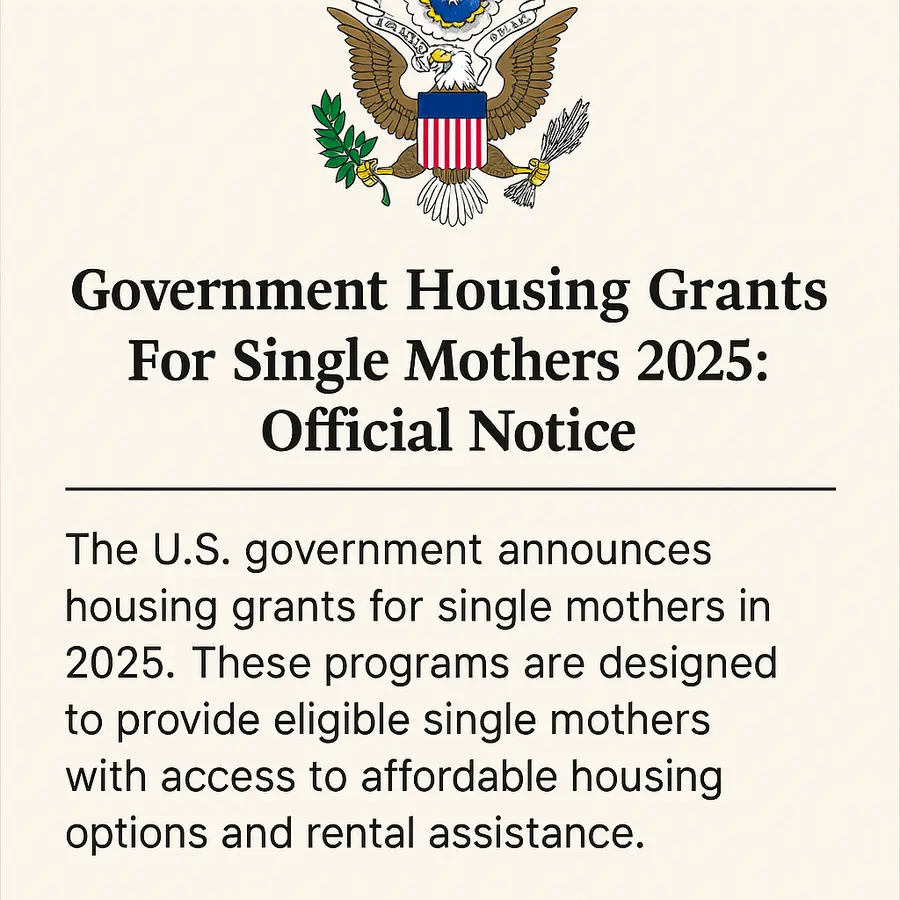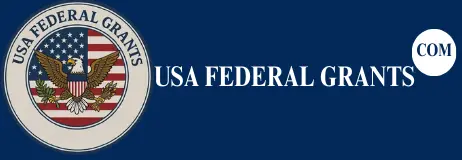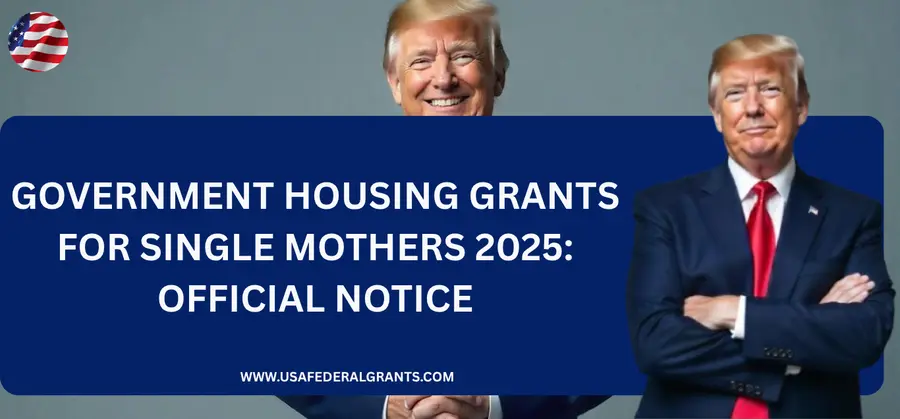Access to secure and affordable housing remains a critical issue across the United States, especially for single mothers who often face financial challenges while raising children independently. In response to this growing need, various federal and state initiatives have been rolled out to provide housing grants for single mothers in 2025. These grants are designed to reduce homelessness, improve living conditions, and empower single-parent families with stability and opportunity.

The following table summarizes key information regarding government housing grants for single mothers in 2025:
| Grant Program Name | Description |
|---|---|
| Section 8 Housing Choice Voucher Program | Provides rental assistance to low-income single mothers, allowing them to afford safe housing in the private market. |
| Public Housing Program | Offers government-owned housing units at reduced rent to eligible single mothers and families. |
| Continuum of Care (CoC) Program | Supports homeless single mothers with transitional housing, supportive services, and permanent housing assistance. |
| Emergency Solutions Grants (ESG) | Helps single mothers facing homelessness with emergency shelter, rapid rehousing, and homelessness prevention services. |
| USDA Rural Development Housing Assistance | Offers housing support in rural areas, including grants and loans tailored to single mothers. |
| Temporary Assistance for Needy Families (TANF) | While not solely for housing, TANF funds can be used for rental assistance and housing stabilization for single mothers. |
Understanding Housing Grants for Single Mothers
Housing grants for single mothers are a component of broader public assistance strategies aimed at alleviating poverty and promoting family stability. Administered through federal agencies such as the U.S. Department of Housing and Urban Development (HUD) and the U.S. Department of Agriculture (USDA), these programs ensure that vulnerable populations, including single mothers, can access affordable housing solutions.
Grants differ from loans in that they do not require repayment, making them particularly valuable for single mothers struggling with low or unstable income. Eligibility is typically determined by income level, household size, citizenship status, and residency requirements.
Section 8 Housing Choice Voucher Program
One of the most well-known housing grants for single mothers is the Section 8 Housing Choice Voucher Program, administered by HUD. This program allows eligible single mothers to receive rental assistance by subsidizing a portion of their rent directly to the landlord. Participants are generally required to contribute 30% of their adjusted monthly income toward housing costs.
Applicants must apply through their local Public Housing Authority (PHA), where they are placed on a waiting list based on need and availability. Due to high demand, it is crucial for applicants to apply early and keep documentation current.
Public Housing Program for Single Mothers
Public Housing is another long-standing federal program offering low-cost rental units to qualifying low-income families, including single mothers. Unlike Section 8, which provides vouchers for private rentals, Public Housing units are owned and managed by local housing authorities.
Eligibility is similar to other housing grants for single mothers and typically includes income verification, background checks, and residency requirements. Single mothers living in Public Housing can often access additional community services, such as childcare support and job training programs.
Emergency Solutions Grants (ESG)
For single mothers experiencing immediate housing instability or domestic violence, the Emergency Solutions Grants program offers critical short-term assistance. Administered at the state and local levels, ESG funds are allocated to emergency shelters, rapid rehousing programs, and homelessness prevention efforts.
Services under ESG may include short-term rental assistance, security deposits, utility payments, and supportive case management. This grant plays a key role in preventing homelessness among single-mother households in crisis.
Continuum of Care (CoC) Program
The Continuum of Care Program is a comprehensive federal initiative that addresses chronic and transitional homelessness. Housing grants for single mothers under this program include not only shelter but also essential support services such as mental health counseling, job placement, and childcare.
CoC programs are often managed through local nonprofit organizations and coalitions. Single mothers who are homeless or at imminent risk can benefit from personalized, long-term support to regain housing stability and independence.
USDA Rural Development Housing Assistance
Single mothers living in rural areas may qualify for specialized housing grants through the USDA’s Rural Development program. These grants and low-interest loans support the construction, repair, or purchase of affordable housing in underserved rural communities.
In 2025, the USDA continues to prioritize housing accessibility for rural single mothers by offering direct assistance and partnering with local agencies for outreach. Applicants must meet income and location requirements and may also receive guidance on homeownership and budgeting.
Temporary Assistance for Needy Families (TANF)
While TANF is traditionally seen as a cash assistance program, it also plays a role in supporting housing stability. States may use TANF funds to provide rent subsidies, emergency housing assistance, and support services tailored to single mothers.
TANF-funded housing assistance varies by state and is often administered through local welfare offices. Eligible single mothers can use TANF grants as part of a broader plan to secure employment and maintain long-term housing.
Application Process and Documentation
To apply for housing grants for single mothers in 2025, individuals should begin by identifying the most suitable program based on their location, income level, and housing need. Applications typically require:
- Proof of income (pay stubs, tax returns)
- Identification (Social Security card, photo ID)
- Citizenship or legal residency documents
- Proof of residency or homelessness (utility bills, eviction notices)
Applicants should visit their local housing authority or state human services office for guidance and to access official application forms.
Final Thoughts
The availability of housing grants for single mothers in 2025 represents a continued commitment by the U.S. government to support vulnerable populations and reduce housing insecurity. While demand remains high, early application and persistent follow-up can significantly increase the chances of approval.
These grants are more than financial aid—they provide a foundation upon which single mothers can build stable lives for themselves and their children. It is recommended that applicants remain informed through official channels and consult with housing counselors or nonprofit advocates when navigating the process.
For additional resources and application portals, the following websites may be useful:
- wbindia.in – Provides detailed guidance on welfare and housing schemes.
- khadyasathi.in – Food and housing-related support services.
- rationcardindia.com – Documentation and eligibility details for public assistance.
- banglastudentcreditcard.in – Education and financial aid options for single-parent students.
- Purihotelbooking.co.in – Information on temporary accommodations and travel assistance.
- banglashasyabima.net.in – Agricultural insurance and rural housing support resources.
Applicants are advised to rely on official state and federal websites for the most accurate and up-to-date information regarding housing grants for single mothers in 2025.
Read More: Free Government Grant Money For Single Moms 2025
firsthomeownergrants.com :- The First Home Owner Grant is a one-time government payment in Australia to help first-time buyers purchase or build a new home.
Calculate your credit card interest easily with our free tool – Credit Card Interest Calculator


Pingback: Apply Now For Washington State Unemployment Benefits 2025: Up To $1,000 Monthly Support | USA Federal Grants
Pingback: Breaking: Massive $7,000 Government Grant For Individuals Revealed In 2025 | USA Federal Grants